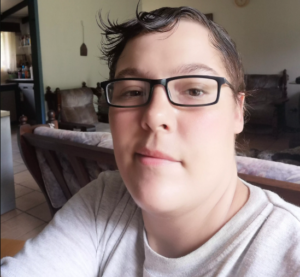Recognition of Prior Learning (RPL) is an excellent way to get your previous skills and knowledge recognised at a college or university. This is because throughout your life, you will have acquired a number of skills that can be used to your advantage. These skills could help you earn an accredited NQF-level qualification.

What is Recognition of Prior Learning?
Recognition of Prior Learning (RPL) is all about assessing what you already know and checking if it matches the qualification you want to obtain. The best part is that it takes into consideration formal, non-formal and informal learning. These include provider programmes, workshops and on-the-job training. RPL prevents experienced students from having to complete subjects unnecessarily.
Benefits of RPL
Many people have years of experience in a certain field, but do not have the qualifications to back it. But as the world progresses, having relevant qualifications is becoming more necessary. RPL provides the perfect solution. Need extra convincing? Have a look at the list below for more benefits:
- Gain a qualification in a shorter amount of time
- Makes higher education more accessible for people who went to work after matric
- Recognises the amount of learning you have done in the workplace
- Boosts your career by giving you a formal education
- Helps students who don’t meet the full entry requirements of a course
How Does RPL Work?
To qualify, your skills must be related to the course you want to study. RPL is also for those who might not meet the entry requirements for a course, but have relevant experience.
To start the RPL process, you will need to provide proof of the skills you’ve obtained. It will then be assessed to determine if your prior knowledge is relevant to the programme. This proof may take the form of:
- A detailed CV
- References
- A Portfolio of Evidence (PoE) – this is where your course knowledge will be tested
- Transcripts of your academic results
- Copies of your personal achievements (any awards or certificates)
Please note: RPL cannot give you full credits for a course. Meaning that your prior knowledge won’t allow you to skip straight to graduation day. To receive a qualification from an institution, you have to complete at least 50% of the course with them.




Skills Academy is the word support in every way.
















Difference Between an Exemption and a Credit Transfer
Exemptions and credits transfers are both types of RPL. With both systems, you will have to provide official and up-to-date evidence. But there is a major difference between the two. Explore them below:
Exemption
Exemptions recognise the skills gained from both your previous education and work experience. Detailed proof, such as a Portfolio of Evidence (PoE) is required. This is because you have to show that you’re knowledgeable enough to be excused from certain subjects.
Credit Transfer
Transferring credits is a much simpler process. If you are moving to a different college or university, you can apply to have the credits from your subjects transferred. Doing so means that you won’t have to repeat them. All you have to do is provide proof that you passed. Keep in mind that these subjects must be relevant to the course you study at your new institution.
Are There any Costs Involved?
Yes there are. Each institution will charge you differently, so it’s important to do your research. You may be required to pay for the cost of the RPL application. And if you’re successful, you’ll also have to pay for each exemption you receive.
Further Your Education Today
Do you have accounting experience you can put to good use? Then go ahead. Use the RPL process when enrolling in our CIMA and ICB Courses! We also have a number of other courses for all your study needs. Speak to our study advisors to get started. You can:
- Call us on: 0800 39 00 27 – It’s free!
- Fill out our contact form and we’ll call you back